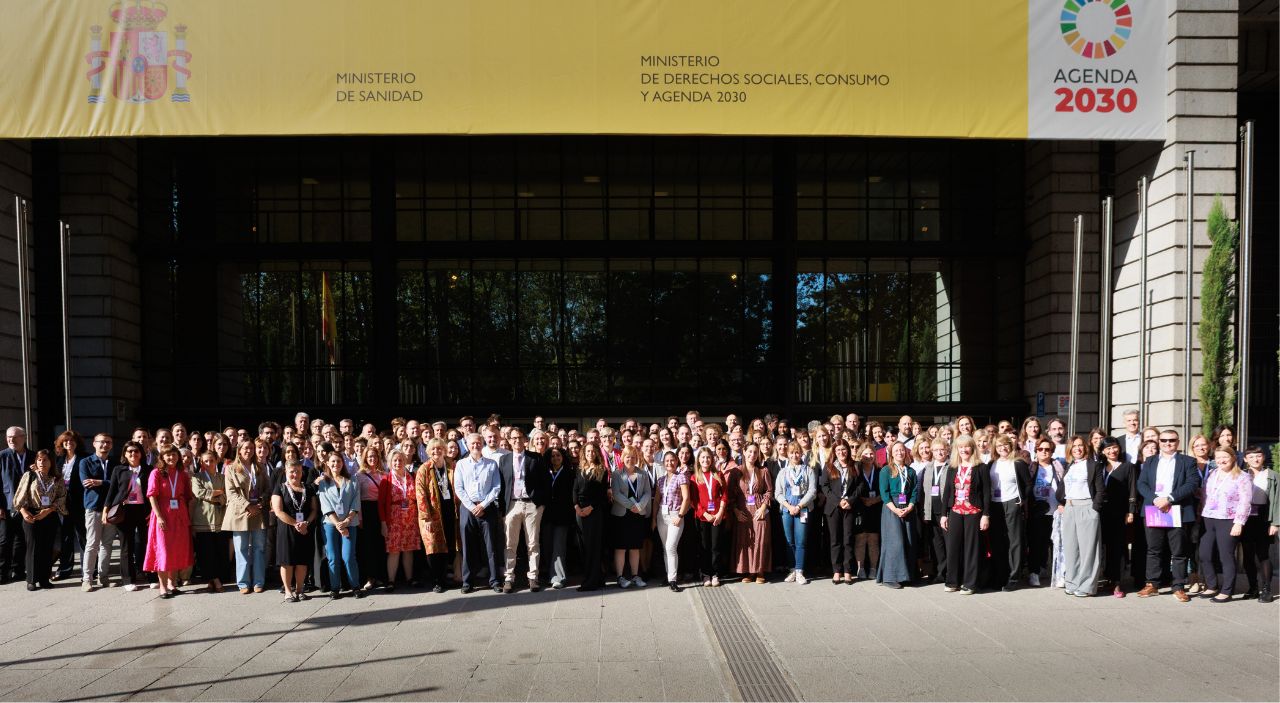14 October 2025
Jacardi
From 14 to 16 October 2025, Madrid hosts the third General Assembly of the Joint Action on Cardiovascular Diseases and Diabetes (JACARDI), gathering more than 200 participants from 21 European countries
- Discussions centre on health, equity, gender disparities, monitoring systems, sustainability across all the “patient journey”, and the forthcoming EU Cardiovascular Health Plan.
- High-level institutional representatives, including the European Commission, the WHO Regional Office for Europe and health authorities from Spain, together with key experts and representatives from the scientific and civil society, deliver keynote speeches setting the stage for dialogue with the aim to strengthen collaboration to reduce the burden of non-communicable diseases across Europe
Madrid, Spain – Equity in health remains one of Europe’s most pressing challenges. Differences in access to care, diagnosis, and treatment continue to shape health outcomes across the region. Gender is emerging as a particularly critical dimension, as women in Europe face worse outcomes in cardiovascular disease, from higher mortality after heart attacks to longer delays in receiving treatment. Furthermore, data from the European Society of Cardiology (ESC Atlas of Cardiology) reveals that 40% of women in the EU die from cardiovascular disease.
This challenging reality is at the centre of discussions at the Third General Assembly of the Joint Action on Cardiovascular Diseases and Diabetes (JACARDI), taking place in Madrid from 14 to 16 October and hosted at the Spanish Ministry of Health and the Ilustre Colegio Oficial de Médicos de Madrid.
The Assembly brings together more than 200 representatives from 21 European countries, including the European Commission, the WHO Regional Office for Europe, scientific societies, and patient organisations. This year’s programme places gender and equity at the heart of the agenda, alongside sustainability, data monitoring, and the forthcoming EU Cardiovascular Health Plan.
With equal access to prevention and care at the forefront, participants reflect on the progress made during the first two years of JACARDI to highlight lessons learned and barriers tackled while improving care pathways in diverse settings across European health systems.
“At the heart of JACARDI is the belief that health systems must serve everyone, fairly and equally. That’s why equity and diversity are not side topics in JACARDI, they are central to everything we do. This General Assembly in Madrid is an opportunity to show that together we can accelerate the shift towards a more equitable and healthier future”, adds Dr Benedetta Armocida, JACARDI’s Coordinator.
“Women are more likely to die from a heart attack and yet remain underrepresented in clinical trials, leaving critical knowledge gaps that perpetuate unequal care. Recognising gender differences in cardiovascular disease is not about division, it is about improving care to meet the unique needs of everyone”, says Dr Héctor Bueno, co-leader of JACARDI’s Work Package on data availability and quality and group leader of the Multidisciplinary Translational Cardiovascular Research at the Spanish National Centre for Cardiovascular Research (CNIC).
In the spotlight: The Cardiovascular Health Plan
The meeting takes place at a pivotal moment as the European Commission prepares the Cardiovascular Health Plan. By connecting JACARDI’s insights and pilot experiences to this political momentum, the Assembly intends to strengthen motivation, collaboration, and collective capacity to reduce the burden of non-communicable diseases across Europe. To this end, there is a dedicated roundtable during the event focusing on the EU Cardiovascular Health Plan, featuring representatives from DG SANTE (the European Commission’s Directorate-General for Health and Food Safety), the European Public Health Alliance (EPHA), and scientific societies such as the European Society of Cardiology, the European Heart Network, the European Diabetes Forum and the International Diabetes Federation.
Contributions from WHO Regional Office for Europe and the JA PreventNCD initiative on monitoring systems and reducing health inequities are included on the agenda as well as pilot experiences from Portugal, Spain, Iceland, Romania, Belgium, Ireland, Italy and Poland, highlighting early results from JACARDI’s 143 pilot projects.
The agenda also explores sustainability and the translation of evidence into policy, ensuring that JACARDI’s pilot actions contribute to long-term change. On October 15 and 16, dedicated sessions explore specific focus areas, such as health literacy, integrated care pathways, data accessibility, and patient self-management. These workshops are designed to facilitate in-depth discussions and promote actionable insights to enhance health outcomes across Europe.
JACARDI, a Joint Action of the European Union, is a collaborative initiative aimed at addressing the rising prevalence of cardiovascular diseases and diabetes. Through coordinated efforts among European member states, the program focuses on evidence-based strategies and best practices to prevent and manage non-communicable diseases effectively. JACARDI is conducting 143 pilots to test evidence-based practices for preventing and managing cardiovascular disease and diabetes, with 81 partner institutions across 21 European countries.
